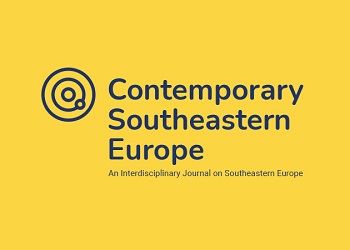Changing Memoryscapes in postYugoslav Countries: Social (Re)construction of Places of Memory
Changing Memoryscapes in postYugoslav Countries: Social (Re)construction of Places of Memory
Author(s): Ana LjubojevićSubject(s): Politics of History/Memory
Published by: Universität Graz
Keywords: postYugoslav countries; Memory studies;
Summary/Abstract: What exactly do we mean when we think of research of and in the post-Yugoslav space, Southeast Europe, the Western Balkans, "the region (region)", the "former country (bivša država)", or "the neighbourhood (sus(j)edstvo)"? Since the breakup of Socialist Federal Republic of Yugoslavia (SFRY), the territory this country once occupied has been intensively labelled with multiple geographical, political and cultural significations. While a spatial turn has impacted the social sciences and humanities globally since the 1980s, there has been comparatively little attention paid to the role of space and geography in the research on identity and nation-building in former Yugoslavia. Therefore, although most of the post-'89 research dealing with Southeast European studies has concentrated on Yugoslav war/post-war studies and identity studies, said research has predominantly focused on political elites and institutions, leaving the agency of individuals and/or groups and their representation unproblematised. Therefore, a bottom-up approach is essential to grasp the other part of the spectrum of the ‘political’ – discursive acts that "involve power, or its inverse, resistance."
Journal: Contemporary Southeastern Europe
- Issue Year: 8/2021
- Issue No: 2
- Page Range: 24-31
- Page Count: 8
- Language: English

